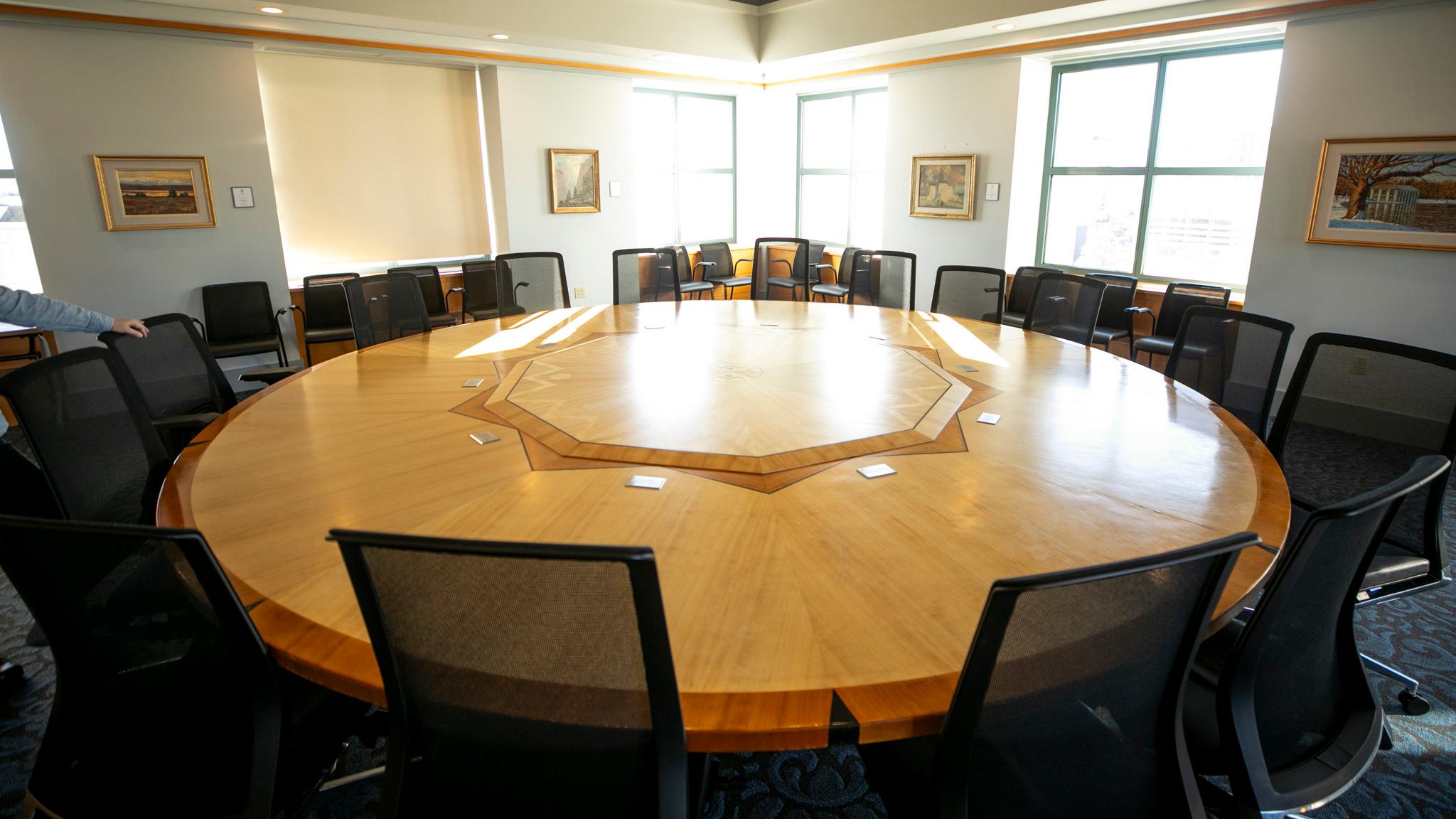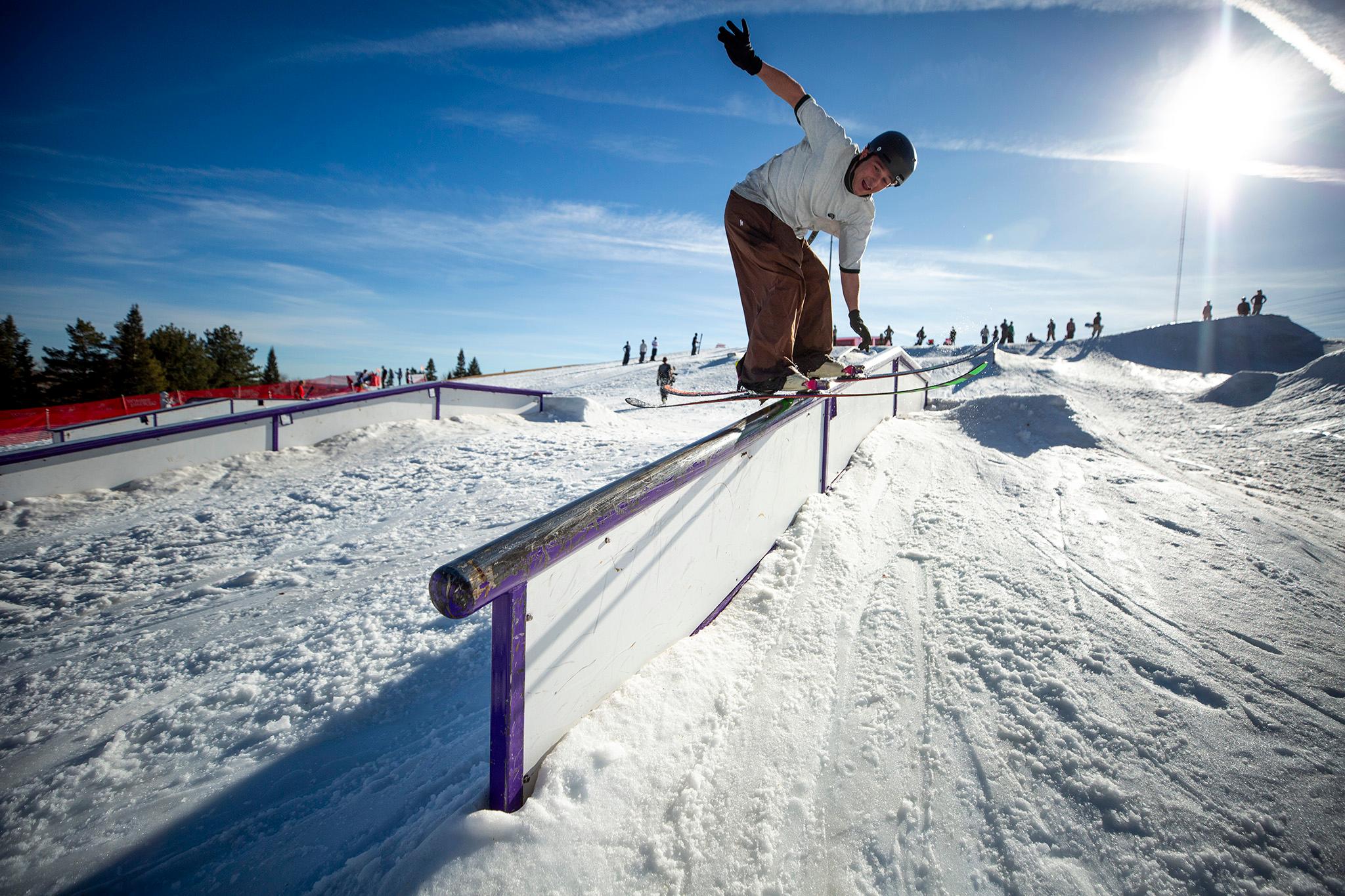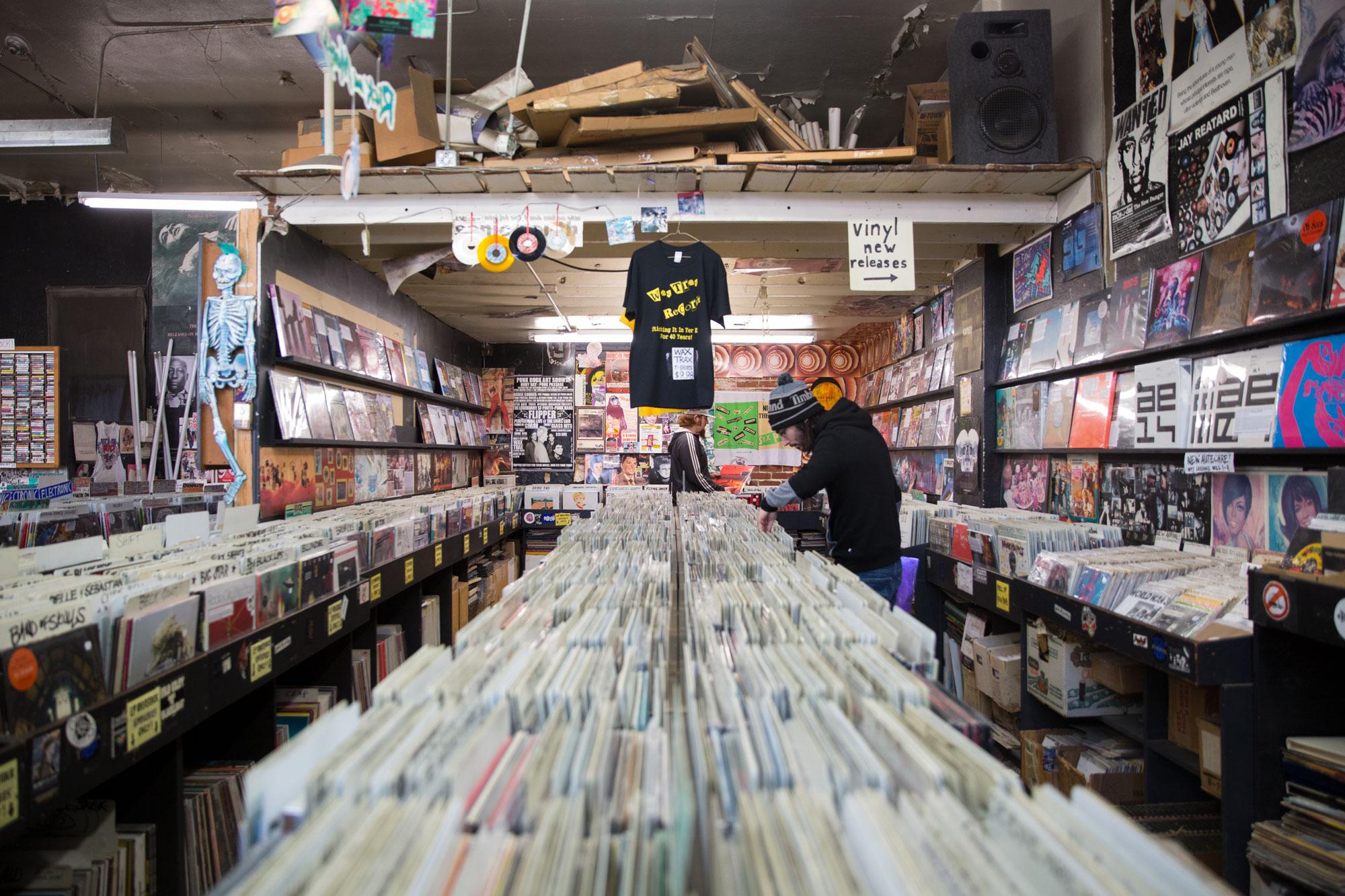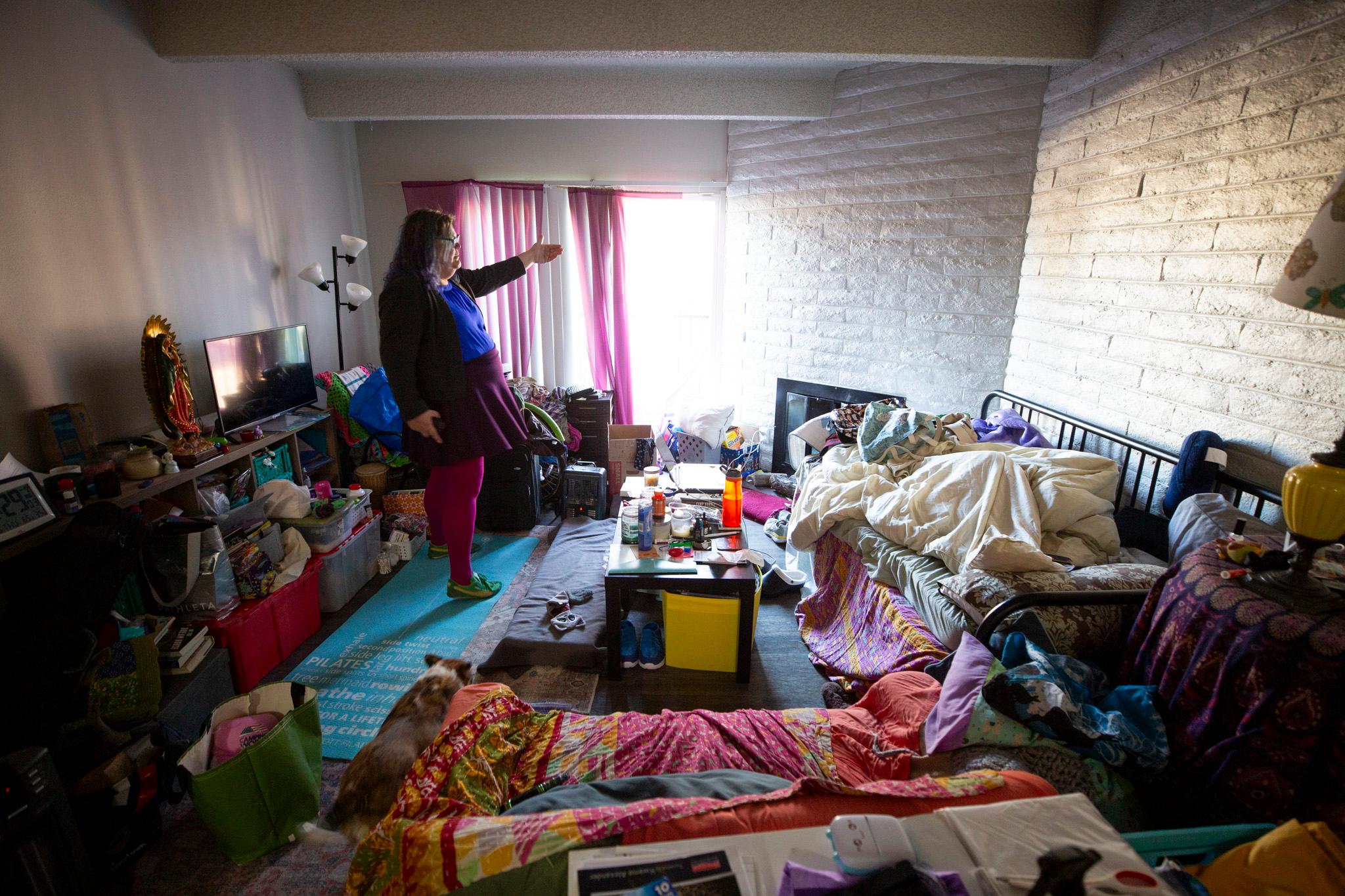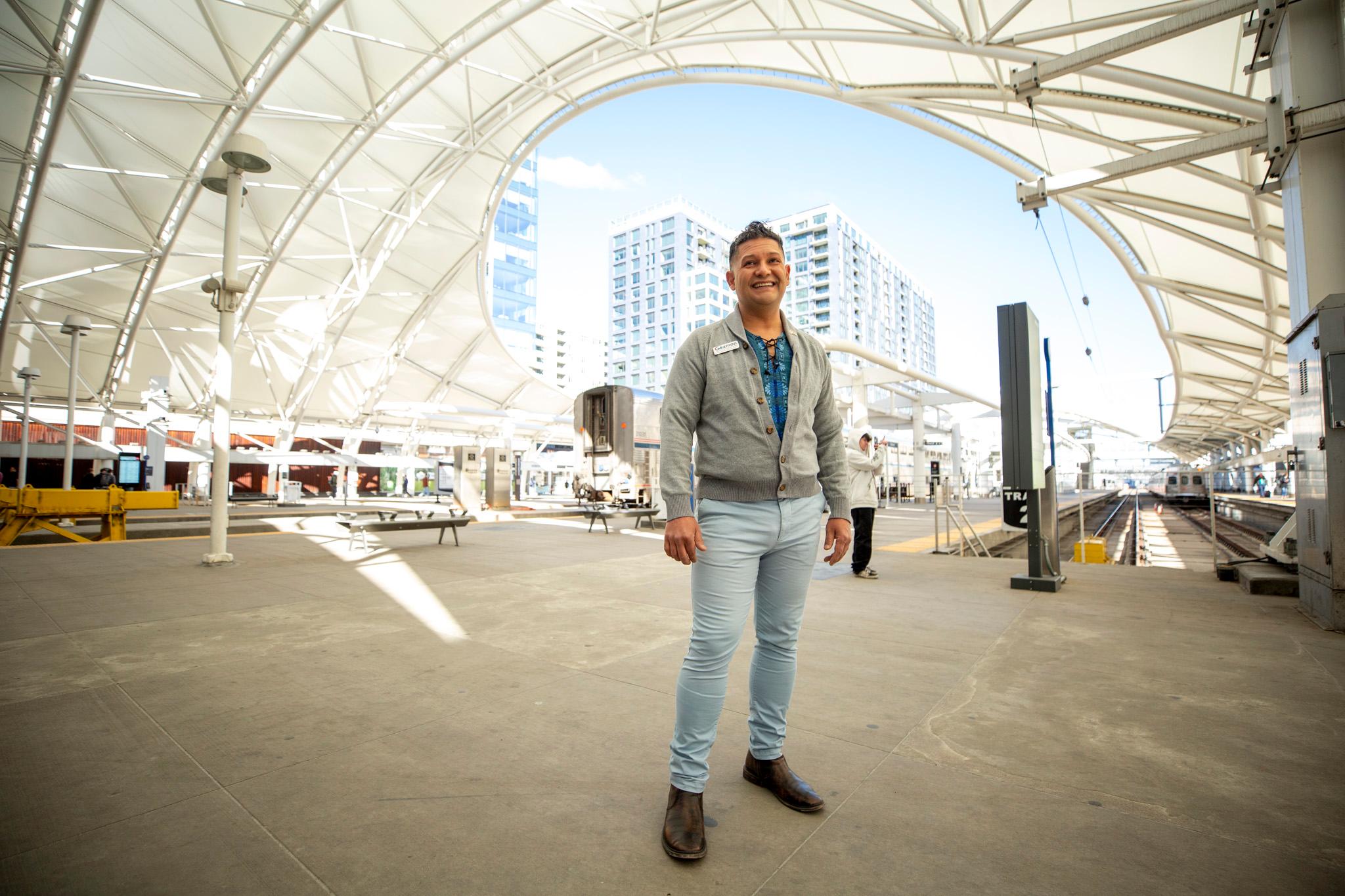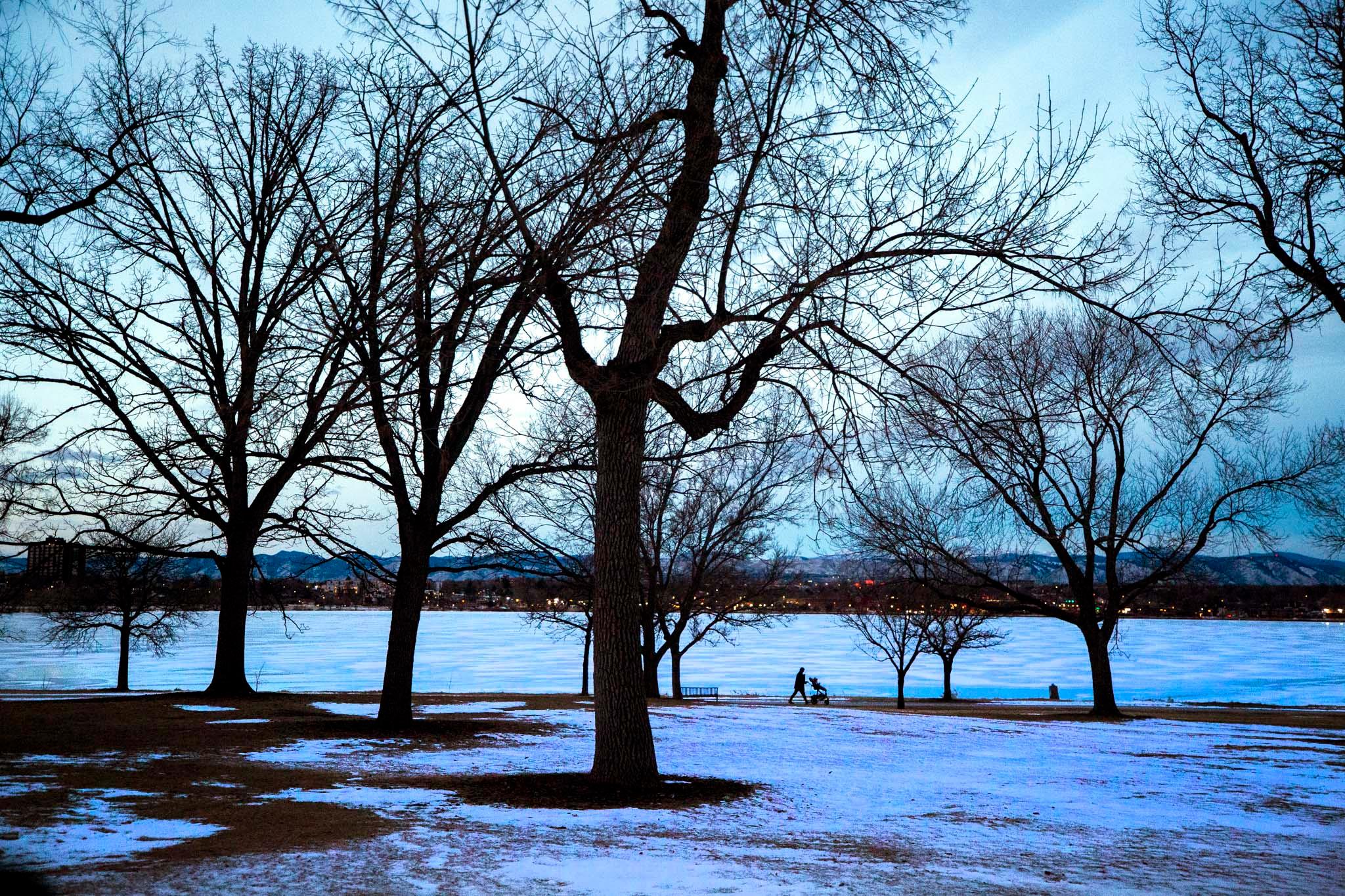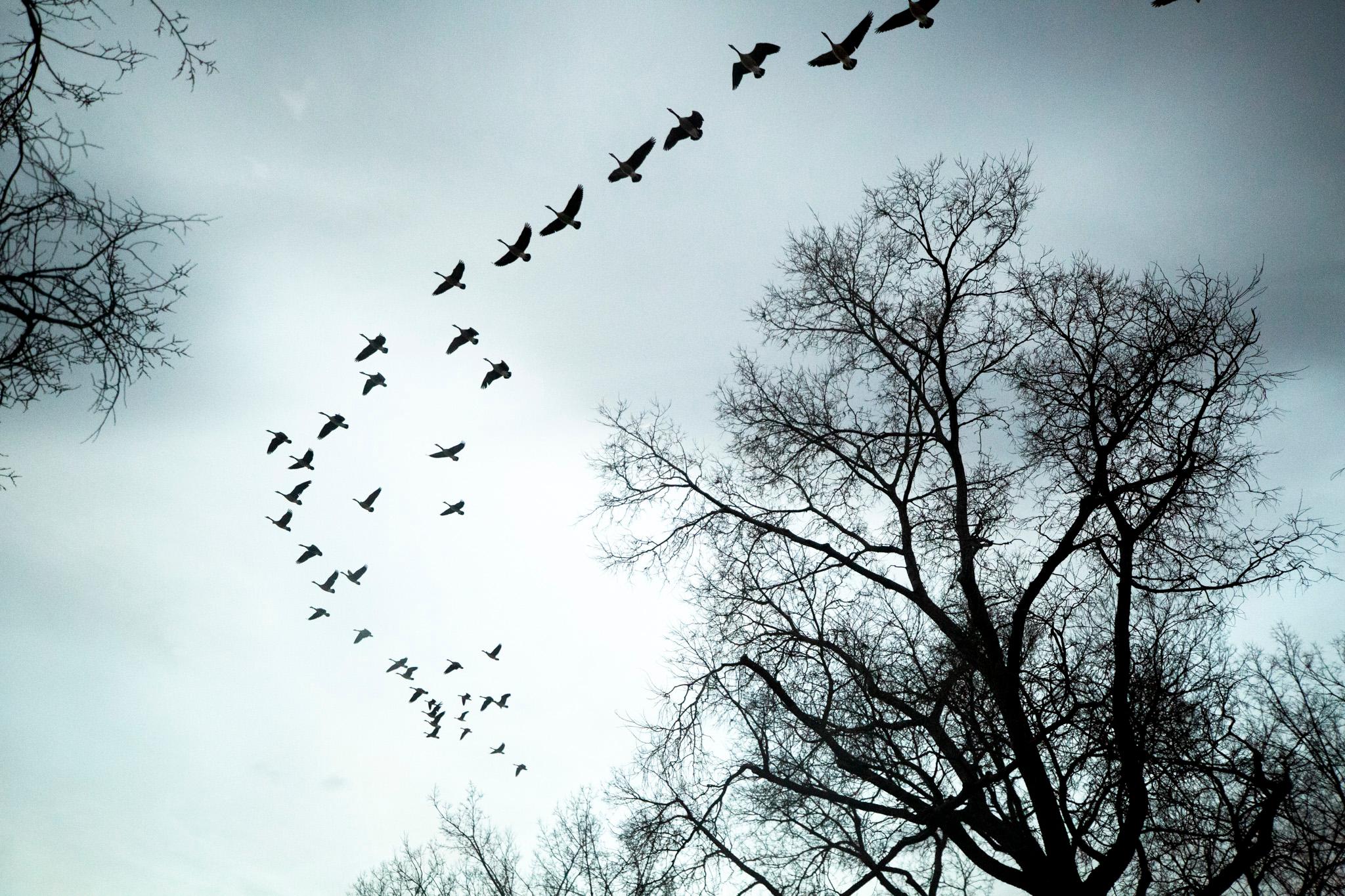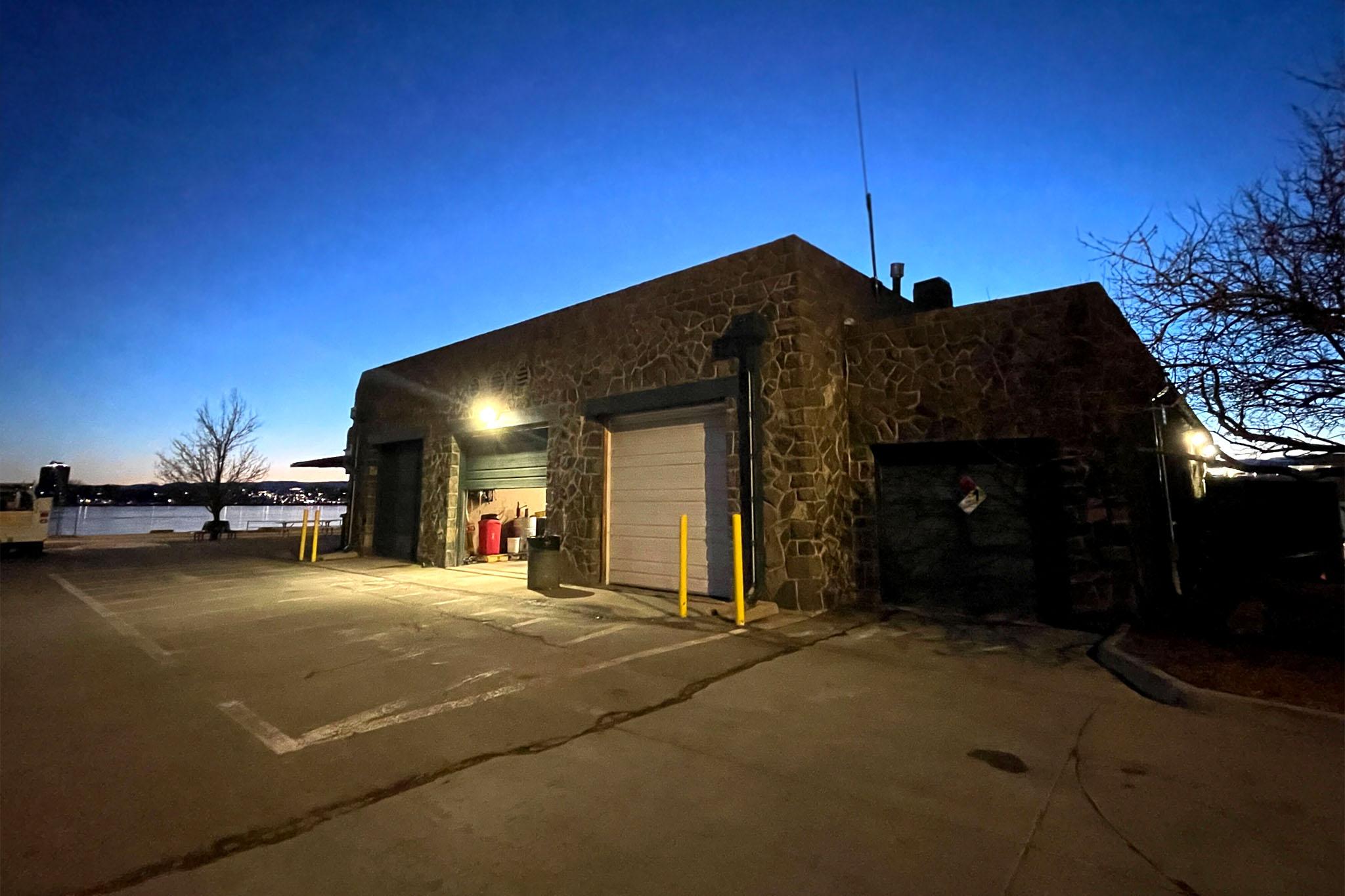Russia’s invasion of Ukraine has become Europe’s deadliest conflict since World War II. There are 1 million dead or injured. Cities have been obliterated. And the recent exchange of long-range and hypersonic missiles has raised fears of a broader war.
Tucked away at Denver’s Central Library, you’ll find a relic of a very different time for Russia's relations with the West— one that wasn’t so long ago.
Known as the Legacy Table, this piece of history is made of 500 pounds of birch, aspen and cherry wood. It’s where the world’s most powerful people tried to define a new era of peace at The Summit of the Eight, an international meeting held at Denver’s main library in 1997.
The world was moving on from the Cold War and, for a brief weekend, that monumental shift unfolded in Denver. The city basked in the international spotlight. When it faded, this table was left behind as a token of our role in history.

But, where exactly is this piece of history?
That’s a question from reader Tom Hart, who wanted to know if the table made it through the library’s recent renovation.
The summit took place on the ground level, where the table hosted discussions including trade, the fallout of the Bonsian war and even the emerging science of cloning. When it ended, the table was taken upstairs to the seventh floor.
It still sits in a room beneath the library’s iconic green steeple, but it's no longer accessible to the public.

Central branch director Rachel Fewell said she’s not sure how anyone got the 12-foot hunk of wood up there.
“I know it was a big deal to get it moved,” she said. “We couldn't fit this on an elevator.”
The table was locked away when the central branch closed during recent construction. While most of the building has reopened, Fewell said the Legacy Table room is still closed to the public. DPL is short-staffed, she told us, and isn’t ready to staff that corner of the library for public use.
Fewell wants to open public tours to view the table in the meantime.

Boris Yeltsin “was everywhere at once in Denver.”
The Denver meeting was supposed to start a new era.
“The world's richest nations opened the door to their former archenemy Friday,” a Rocky Mountain News story proclaimed in June 1997, “offering hope to Russia as it stood on the threshold of joining the Denver Summit of the Eight as an equal partner.”
At the time, President Bill Clinton wanted to woo then-Russian President Boris Yeltsin into a new relationship with the West. Officially, this was a meeting of the G7 nations: France, the U.K., Germany, Japan, Italy, Canada and the U.S.
Yeltsin hoped Russia would join, making it the G8.
It had been almost a decade since the Berlin Wall fell and fears of nuclear war with the Soviet Union began to fade. The U.S. and its allies wanted to expand NATO’s influence, and spread democracy and free-trade economics across the globe.

Russia was still in a state of rebirth. Its sagging economy didn’t qualify for a permanent place in this forum of wealthy nations, but President Yeltsin treated the invitation as a return to the global stage.
“Yeltsin, it seemed, was everywhere at once in Denver,” the Rocky reported. “His ubiquitous silver-haired presence pointed to the fact that Russia has taken another step on the road leading out of its Cold War exile.”
Rachel Epstein, a professor of international affairs at the University of Denver, said Western nations probably saw Yeltsin’s interest in the G7 as an opportunity.
“The Clinton administration, and other NATO allies, were trying to massage the Russian position into ultimately accepting Western ways,” she said of the late ‘90s. “[They] were still, perhaps naively, very optimistic about Russia’s trajectory and acceptance of an enlarged U.S. and an enlarged EU.”

The Rocky recorded President Clinton’s take on the moment.
“What you see here is a sweeping integration of Russia into the major decision-making institutions in the world in a way that is very positive for the rest of us,” he said during a meeting at the Brown Palace Hotel, calling this a “hopeful moment for the world.'
Meanwhile, Yeltsin made deals, “stole the media spotlight” and got what he wanted. The G7 became the G8 the next year, when Russia was granted official membership.
Denver loved hosting, and the world loved Denver.
“Denver charmed Boris Yeltsin,” the Rocky reported after the summit concluded.
“It wasn't just the welcome by other leaders as an equal and not an enemy. It was the crowds of ordinary Coloradans lining up to cheer and applaud the president of Russia, a country so recently the object of their hatred and fear.”
Aleksandr Livshits, one of Yeltsin’s aides, was surprised by the welcome.
“For the first time, I saw people waving in the streets and greeting us,'' he told the paper. “Perhaps this is because Denver is not New York, and it is a once-in-history event for them.''

The local media agreed.
“The receptions, special broadcasts and media attention on our city offered a once-in-a-lifetime opportunity for worldwide exposure,” Cynthia Kemper wrote in a Denver Post column. “The intensity and excitement of hosting the world's most powerful leaders may have catapulted Colorado firmly into the international limelight.”
Yeltsin was desperate to try... buffalo?
It wasn’t just the adoring crowds. Yeltsin loved our cuisine, too. When the party visited The Fort restaurant in Morrison, he rushed ahead for a taste.
“He ran into the restaurant wanting to try buffalo before they set it out on the buffet,'' wrote Norm Clarke, a columnist for the Rocky Mountain News. Clarke had heard the story from the daughter of the restaurant’s owner.
Yelstin “asked for a fork to try [the buffalo] before it was served," Clarke wrote.
Other leaders had their moments, too. Japanese Prime Minister Ryutaro Hashimoto took time to personally thank the Hyatt Regency staff who served him during the weekend.
“Almost three dozen lined up in the lobby, and Hashimoto gave each the traditional bow,” Clarke reported.

In her column reviewing the summit, Kemper quoted Italian journalist Giovanni Padula, who expressed “what many visitors were feeling” after the pomp and ceremony ended: They didn’t take enough time to explore.
"What a missed opportunity," he said. "The offerings of Denver today are so grossly underestimated that, in retrospect, I realize I didn't truly appreciate its breadth and depth."
Denver had made it.
The Legacy Table is a relic of a forgotten future.
Yeltsin resigned in 1999 and named Vladimir Putin acting president. Epstein, the DU professor, said there was hope that Russia would still get along with the West. That outlook changed when it invaded Georgia in 2008.
In 2014, the G8 expelled Russia for its incursion in Crimea. In 2022, Putin’s full-scale invasion of Ukraine made clear that a new era had arrived.
Epstein said the 1990s were a “high point” in the U.S. relationship with Russia, but also a high point in how the U.S. saw its place in the world. That changed as the west’s global power was challenged in the ensuing decades.

And yes, she added, there are plenty of reasons to worry about where the world is headed next. But she cautioned people not to lose sight of how far humanity has come.
“The trajectory over the last 200 to 300 years is definitely in the direction of more democratic governance, more enfranchisement, more human rights, more human dignity, certainly more levels of prosperity,” she said. “I think a country like the United States has to know it is playing the long game.”
That game is so long that a meeting of world leaders at our local Denver library could be lost in the shuffle. It’s why the table where they met, with their names still inscribed on its surface, was saved for the city.
“The Legacy Table will remind Denver and Colorado residents,” the Rocky Mountain News quoted Mayor Wellington Webb saying after the summit concluded, “that for those three days, Denver was the capital of the world.”

